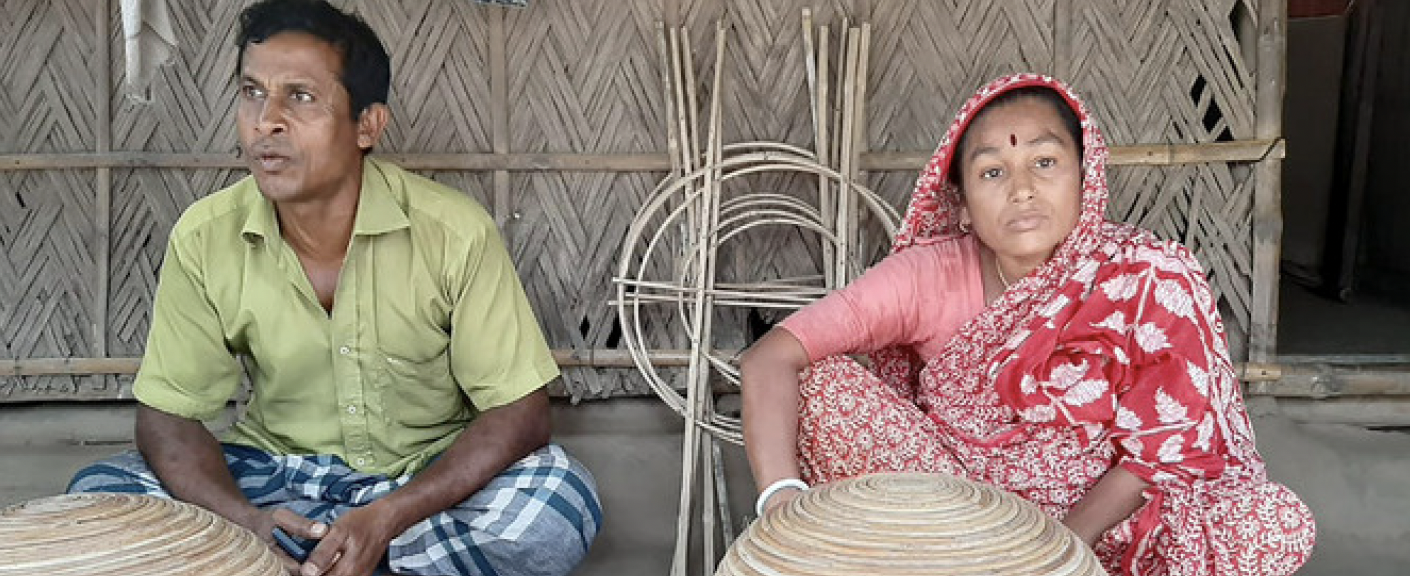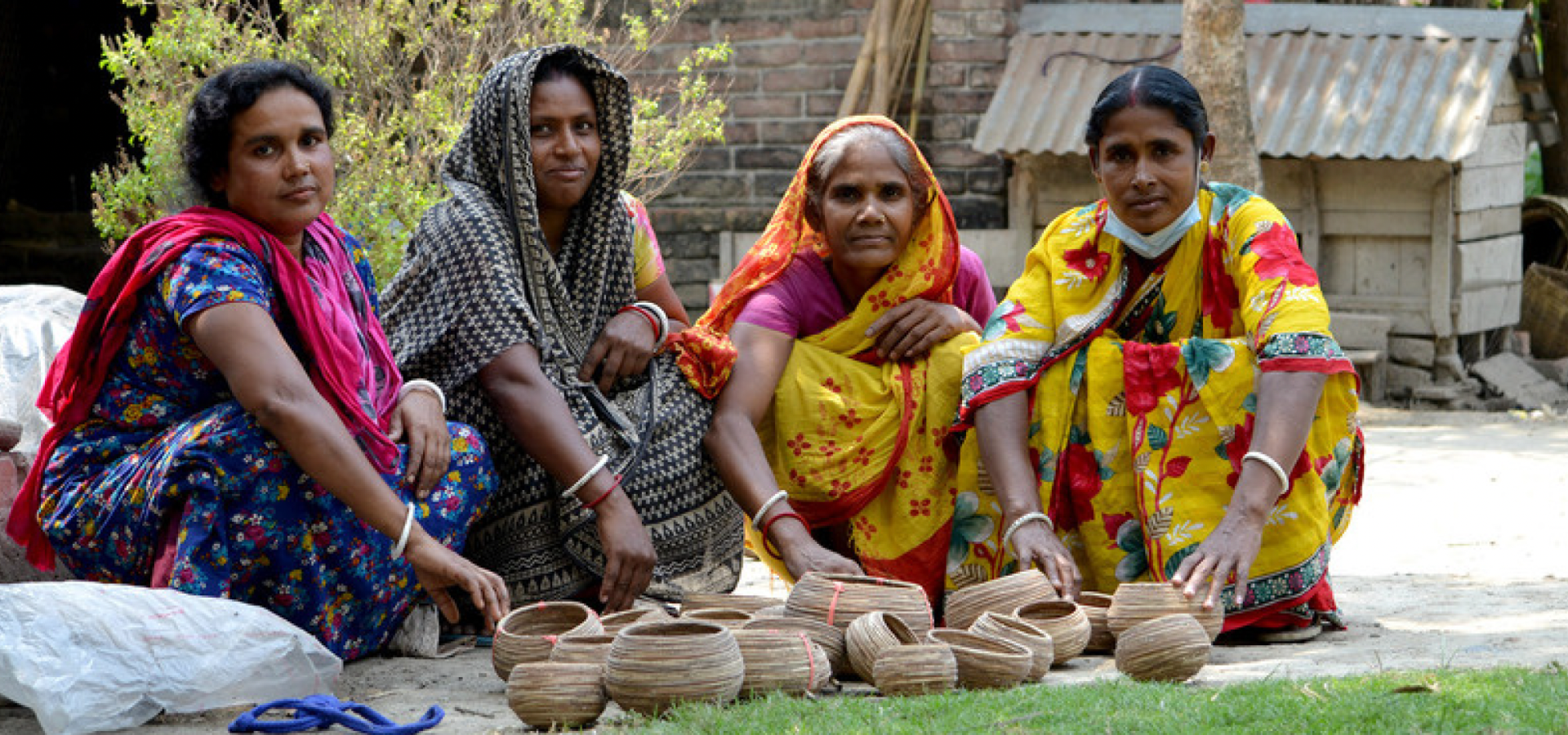Empowering Female Artisans in Narail Slum Areas through the IncluCity Bangladesh Initiative
For more information please contact:
Amadou.Sy
Communications and RBM
amadou.sy@uncdf.org
Tags

The UN Capital Development Fund (UNCDF), in collaboration with local authorities and stakeholders, has successfully completed a transformative project under the IncluCity Bangladesh initiative, focusing on the economic empowerment of female artisans in the Bhadulidanga para slum area of Narail Municipality

This disadvantaged community, where more than 90% of the population belongs to minority religious groups, relied on women making and selling traditional handmade products using locally sourced materials like cane, bamboo, and wood. However, these women faced challenges such as limited access to larger buyer networks, lack of business training, and poor working and selling conditions, hindering their ability to earn adequate incomes.
UNCDF, with the support of the Narail municipality, addressed these challenges through a multi-faceted, community-led approach. The team mapped out and contacted vulnerable and underprivileged female entrepreneurs, assisting them in forming a women's cooperative group. In late 2022, 22 women participated in an orientation program on financial services, business development, and market linkages. The cooperative's registration with the municipality provided members access to various government incentives, including training programs, SME loans, and other resources.
A significant milestone of the project was the construction of the Durgapur Growth and Sales Center for Marginalized Women, an improved and designated marketplace for female artisans and a platform for community engagement. The market, which opened in August 2023 following a launch event attended by local authorities, donors, stakeholders, and partners, has dramatically improved the working conditions and safety of the women by providing waste and sanitation facilities, female toilets, and childcare areas. The marketplace and storage facilities have also contributed to increased incomes for the artisans.
To ensure the sustainability and systemic change of the initiative, UNCDF introduced the City Score Card and Inclusivity Index tools to three municipalities in the region led by female mayors. These tools, adapted to the local context and language, were used by local authorities and stakeholders, including 76 women from marginalized groups, to examine current patterns of marginalization and identify priority issues, financing opportunities, and infrastructure projects that could benefit these groups. The three women-led cities (Natore, Narail, and Tarabo) have been exchanging ideas since the workshops, which provided training on inclusive budgeting and planning.
The IncluCity Bangladesh project has not only empowered female artisans in Narail slum areas but has also promoted sustainable, locally sourced products and expanded buyer networks. The increased market attraction has led to higher revenues for both the municipality and the female artisans. This successful pilot sets the stage for future IncluCity projects and serves as a best practice example for bottom-up, participatory approaches to development work, demonstrating the power of collaboration between local authorities, stakeholders, and marginalized communities in driving sustainable and inclusive economic growth.